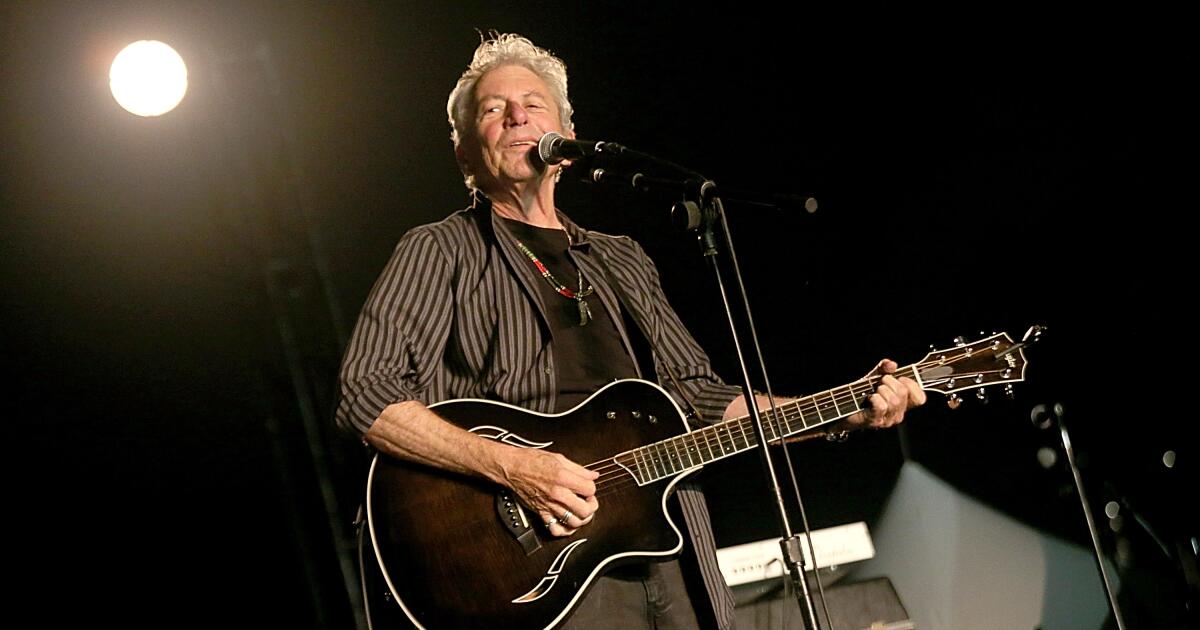Joe Ely, Texas country-rock legend and collaborator with the Clash and Bruce Springsteen, dead at 78
Joe Ely, a singer-songwriter and foundational figure in Texas’ progressive country-rock scene, has died. He was 78.
According to a statement from his representatives, Ely died Dec. 15 at home in New Mexico, from complications of Lewy Body Dementia, Parkinson’s disease and pneumonia.
Ely had an expansive vision for country and rock, heard on singles like “All My Love,” “Honky Tonk Masquerade,” “Hard Livin’,” “Dallas” and “Fingernails.” Born in 1947 in Amarillo, Texas, Ely was raised in Lubbock before moving to Austin and kicking off a new era of country music in the region, one that reflected both punk and the heartland rock of the era back into the roughhousing country scenes they came from.
After founding the influential band the Flatlanders with Jimmie Dale Gilmore and Butch Hancock (which dissolved soon after recording its 1972 debut), he began a solo career in 1977. He released several acclaimed albums, including 1978’s ambitiously rambling “Honky Tonk Masquerade,” before finding his popular peak on 1980’s harder-rocking “Live Shots” and 1981’s “Musta Notta Gotta Lotta.”
Ely, beloved for barroom poetry that punctured country music’s mythmaking, was a ready collaborator across genres. He befriended the Clash on a tour of London and sat in on the band’s sessions recording their epochal “London Calling” LP. He later toured extensively with the group, singing backup on “Should I Stay or Should I Go,” and earning a lyrical tribute on “If Music Could Talk” — ”Well there ain’t no better blend than Joe Ely and his Texas men.”
Ely was a favorite opener for veteran rock acts looking to imbue sets with Texas country swagger. He performed with the Rolling Stones, Stevie Nicks, Tom Petty & the Heartbreakers and Bruce Springsteen, who later sang with him on “Odds of the Blues” in 2024. Springsteen once said of Ely: “Thank God he wasn’t born in New Jersey. I would have had a lot more of my work cut out for me.”
In the ‘90, Ely joined a supergroup, the Buzzin Cousins, with John Mellencamp, Dwight Yoakam, John Prine and James McMurtry, to record for Mellencamp’s film “Falling From Grace.” Robert Redford later asked Ely to compose material for his film “The Horse Whisperer,” which led to collaborations with his old Flatlanders bandmates and a reunion in the 2000s. He also acted in in the musical “Chippy: Diaries of a West Texas Hooker” at Lincoln Center in New York City and joined the Tex-Mex collective Los Super Seven — he shared in the band’s Grammy for Mexican-American/Tejano Music Performance in 1999, his only such award.
Ely was inducted into the Austin City Limits Hall of Fame in 2022 and released his last album, “Love and Freedom,” in February.
